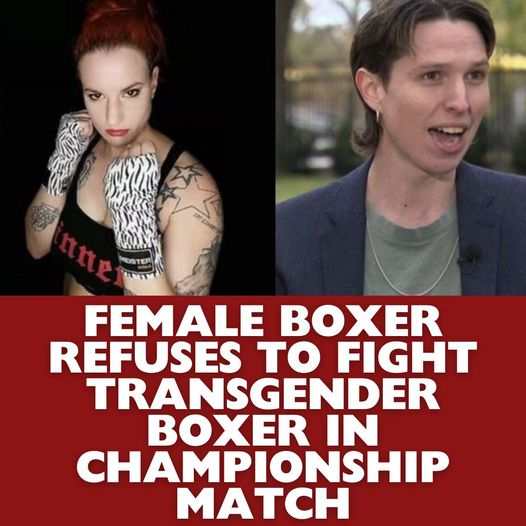The 2023 Provincial Golden Glove Championship in Quebec, Canada, recently made headlines when Canadian female boxer Katia Bissonnette withdrew from a championship match against a transgender opponent. This decision sparked a debate about the inclusion of transgender athletes in sports and raised questions about safety, identity, and fairness.
Katia Bissonnette’s withdrawal from the match came as a last-minute surprise to both the boxing community and the public. She had been preparing for the championship and was all set to compete when she learned that her opponent would be Mya Walmsley, a transgender athlete who had not previously fought as a woman. This revelation led Bissonnette to reconsider her participation in the match.
In an interview with Reduxx, Bissonnette explained the sequence of events that led to her withdrawal. She mentioned that her coach received information via text message that Mya Walmsley was not assigned female at birth. This information, though limited, raised concerns for Bissonnette and her team, as they were unsure about Walmsley’s competitive background and transition history.
Mya Walmsley, originally from Australia, had moved to Canada to attend Concordia University in Montreal. Bissonnette pointed out that Walmsley would have competed as a man in Australia, and his Quebec boxing record showed no fights as a woman. This lack of competitive history as a female boxer in Quebec added to the uncertainty surrounding the match.
After withdrawing from the competition, Katia Bissonnette faced criticism from Mya Walmsley, who accused her of not addressing her concerns directly with him or his coach. Walmsley expressed disappointment that Bissonnette chose to involve the media rather than seeking more information from the relevant authorities or engaging in a conversation with the athletes involved. He argued that such actions put athletes at risk of exclusion and personal attacks based on hearsay.
Walmsley emphasized the importance of trust among athletes when it comes to gender identification, advocating for a system where athletes respect each other’s self-identified genders. In contrast, Bissonnette insisted that the competition’s rules and policies should be transparent and that athletes should not be placed in situations of uncertainty. She noted that Boxing Canada had issued a rule to the Quebec Boxing Federation not to disclose an opponent’s transgender status to prevent discrimination. However, this policy was designed for cases where a sex change had occurred before puberty, and Walmsley’s transition history, as a foreign athlete, remained unclear.
One of Bissonnette’s key concerns was the potential safety risk posed by competing against a transgender athlete. She cited a 2020 study from the University of Utah, which found that male blows had 163% more impact than female blows, even when adjusted for weight. Bissonnette argued that women should not have to bear the physical and psychological risks associated with competing against individuals who were assigned male at birth.
Bissonnette’s stance on gender categories in sports was clear: she believed there should be separate categories for biological males and females to ensure fair competition and address safety concerns.
The debate sparked by this incident highlights the complex and evolving challenges faced by sports organizations, athletes, and policymakers in addressing the inclusion of transgender athletes in competitive sports. It raises important questions about how to strike a balance between fairness, inclusivity, and safety in sports competitions, while respecting the rights and identities of all athletes involved.




